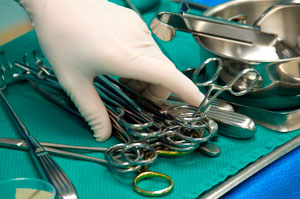What is a Medical Caregiver’s Duty?
 As a general rule, most personal injury claims are based on a legal theory of negligence. For a defendant’s actions to be considered negligent, a jury must find that the conduct was less than what a reasonable person would have done in the same situation. A “reasonable” person is customarily identified as an “average person of ordinary prudence.”
As a general rule, most personal injury claims are based on a legal theory of negligence. For a defendant’s actions to be considered negligent, a jury must find that the conduct was less than what a reasonable person would have done in the same situation. A “reasonable” person is customarily identified as an “average person of ordinary prudence.”
The standard, however, is different in medical malpractice cases. Because of the extensive training they receive, and because of the potential risk if proper procedures are not followed, medical caregivers are held to a much higher standard. In New Jersey, that standard is determined by looking at the generally accepted practices and procedures of all medical caregivers
- In the same geographic location
- With the same amount of experience and training
- In the same specialized field
- Treating the same type of condition
- Other factors that the medic al professional should reasonably have known might have an effect on treatment, such as age or overall health of the patient
In a medical malpractice trial, the jury (or the trier of fact) has the responsibility for determining what the appropriate standard of care was, as well as whether or not the defendant breached that standard of care. Because juries generally lack knowledge of medical standards, it is customary for the parties at trial to introduce expert testimony regarding the standard of care. Typically, both the plaintiff and the defendant will bring in other medical professionals with experience in the specific procedures relevant to the case, and the jury will be required to determine both the standard of care and whether it was met.
Contact Our Office
At Taylor & Boguski, we bring more than 70 years of combined legal experience to injured people throughout New Jersey. For a free initial consultation, contact our office online or call us at 856-234-2233.

